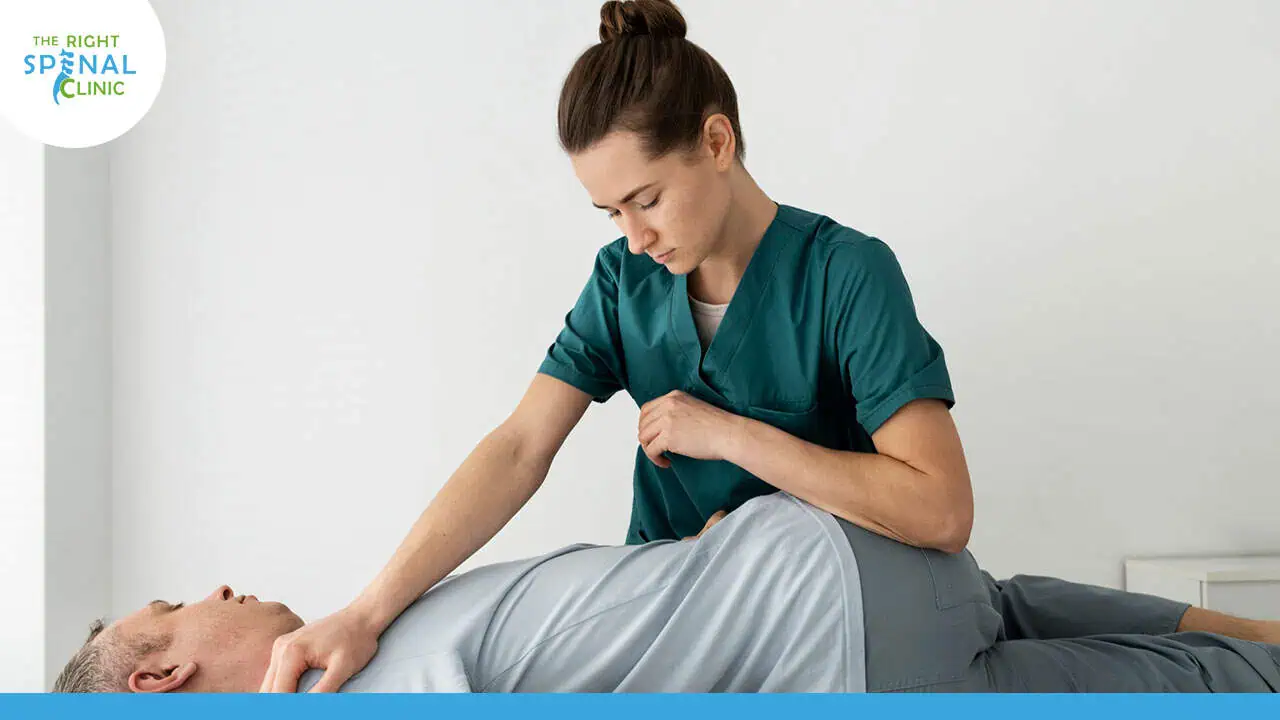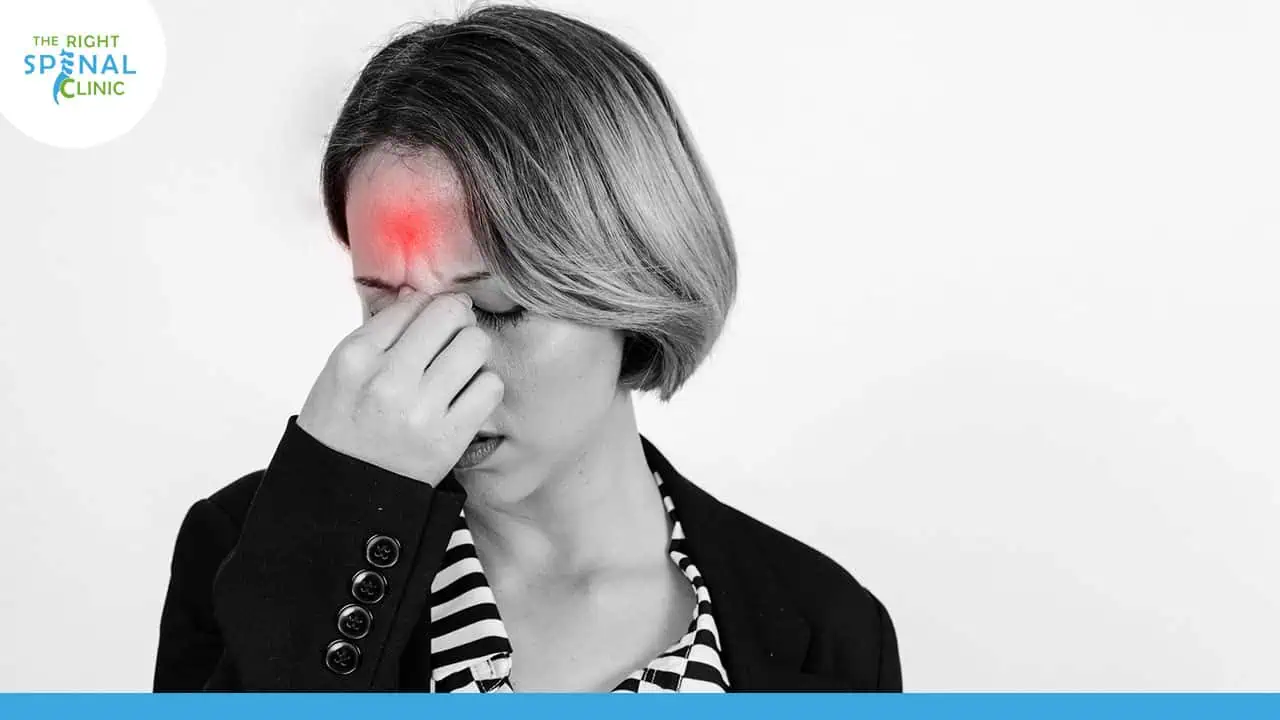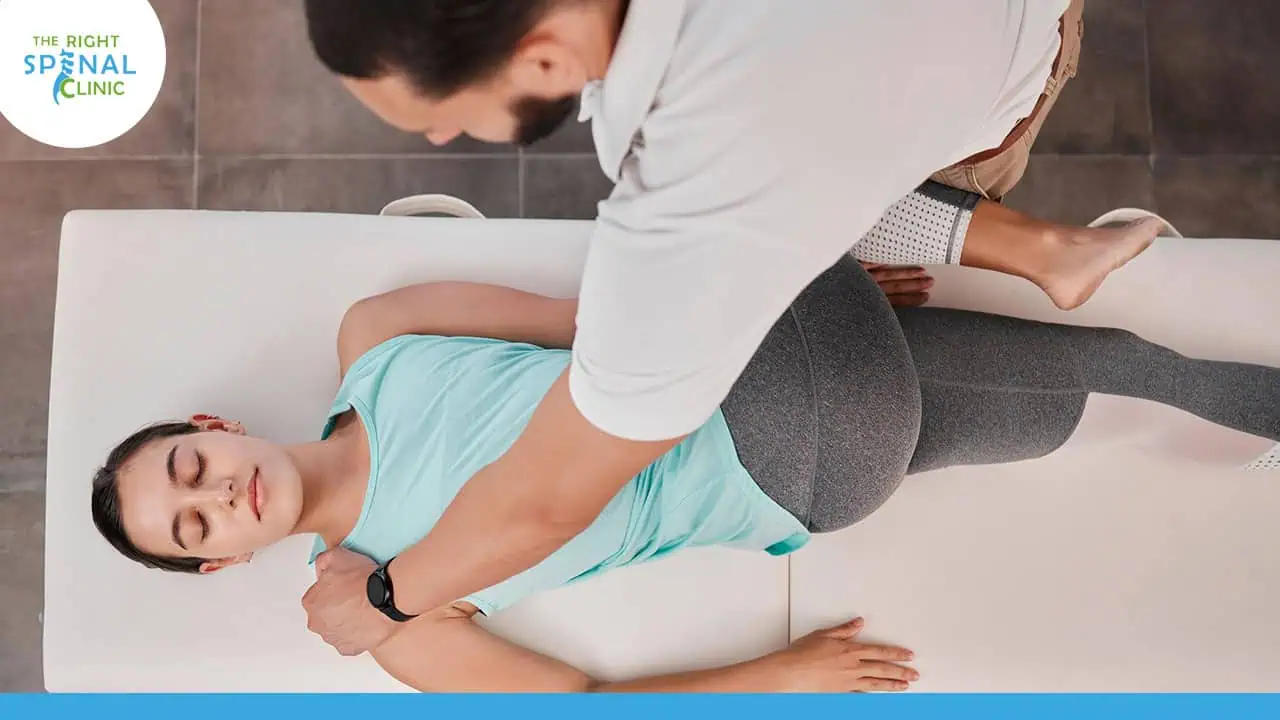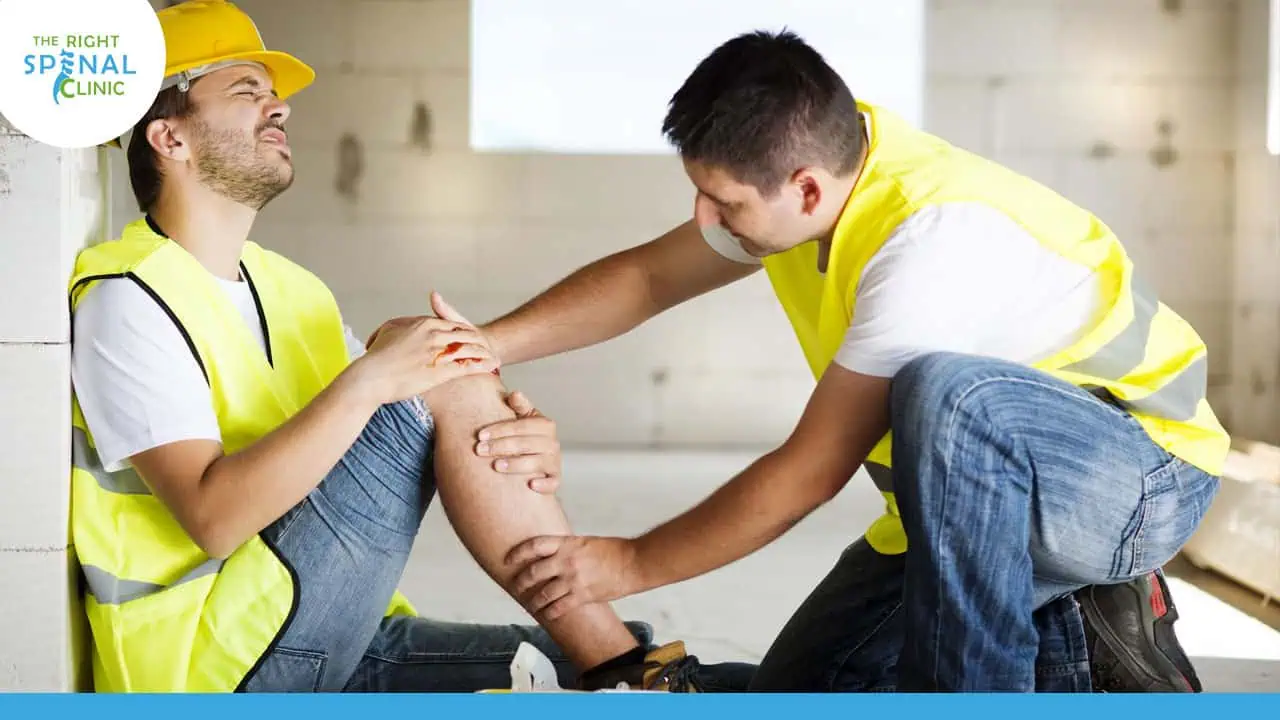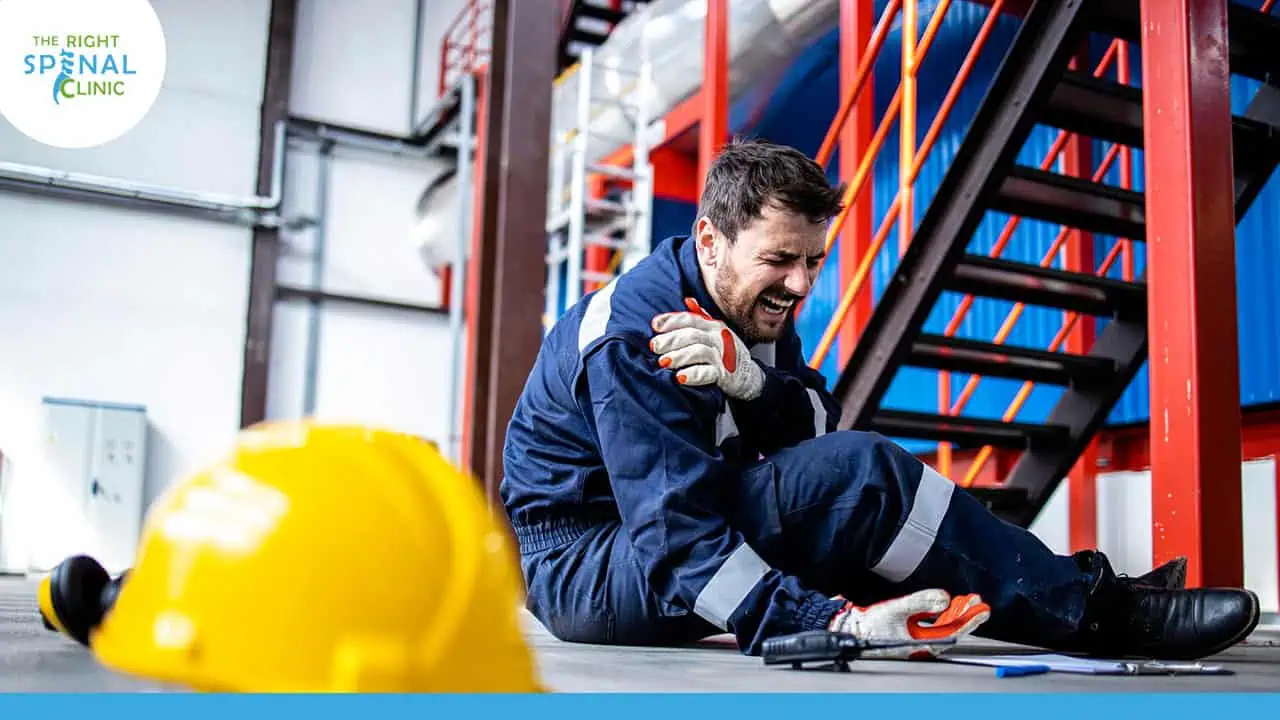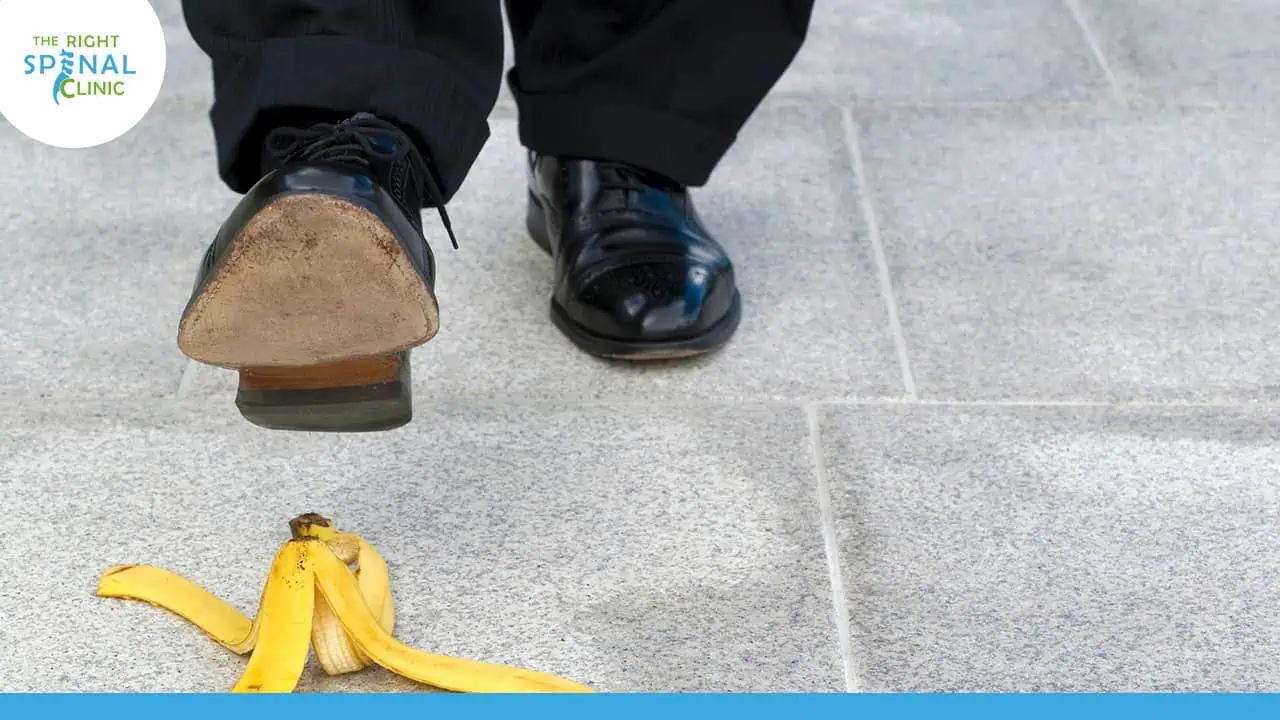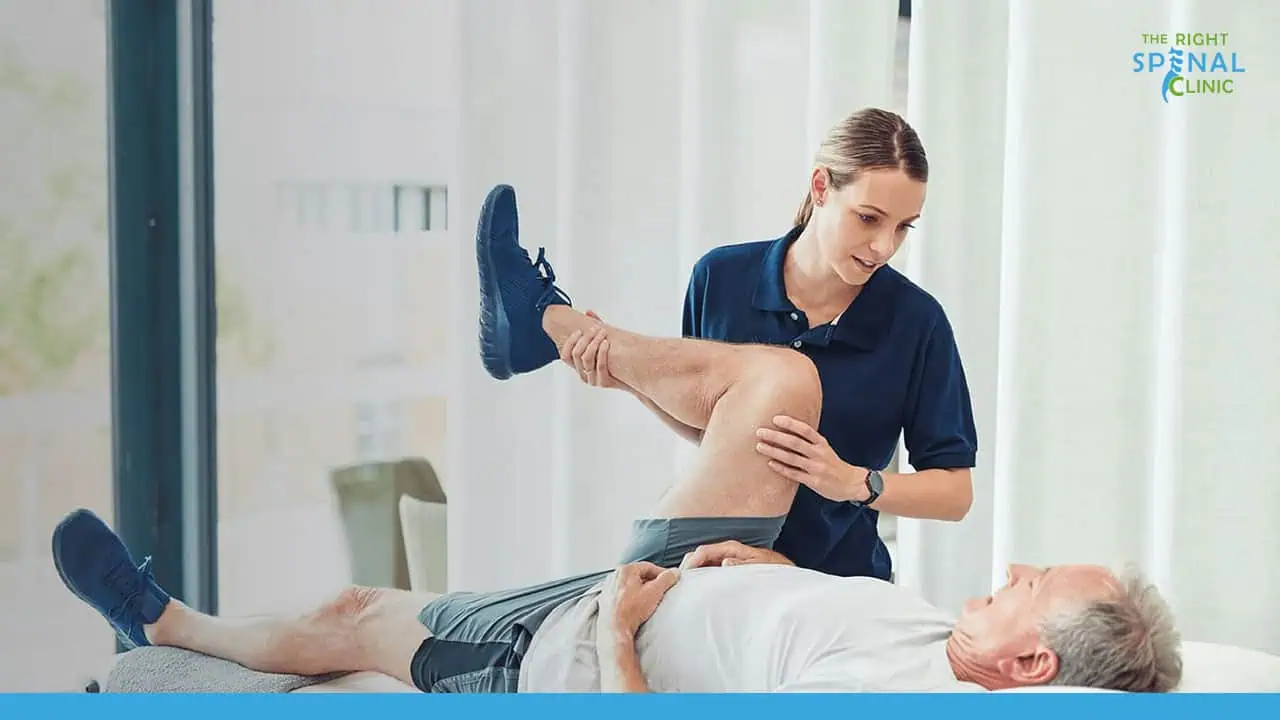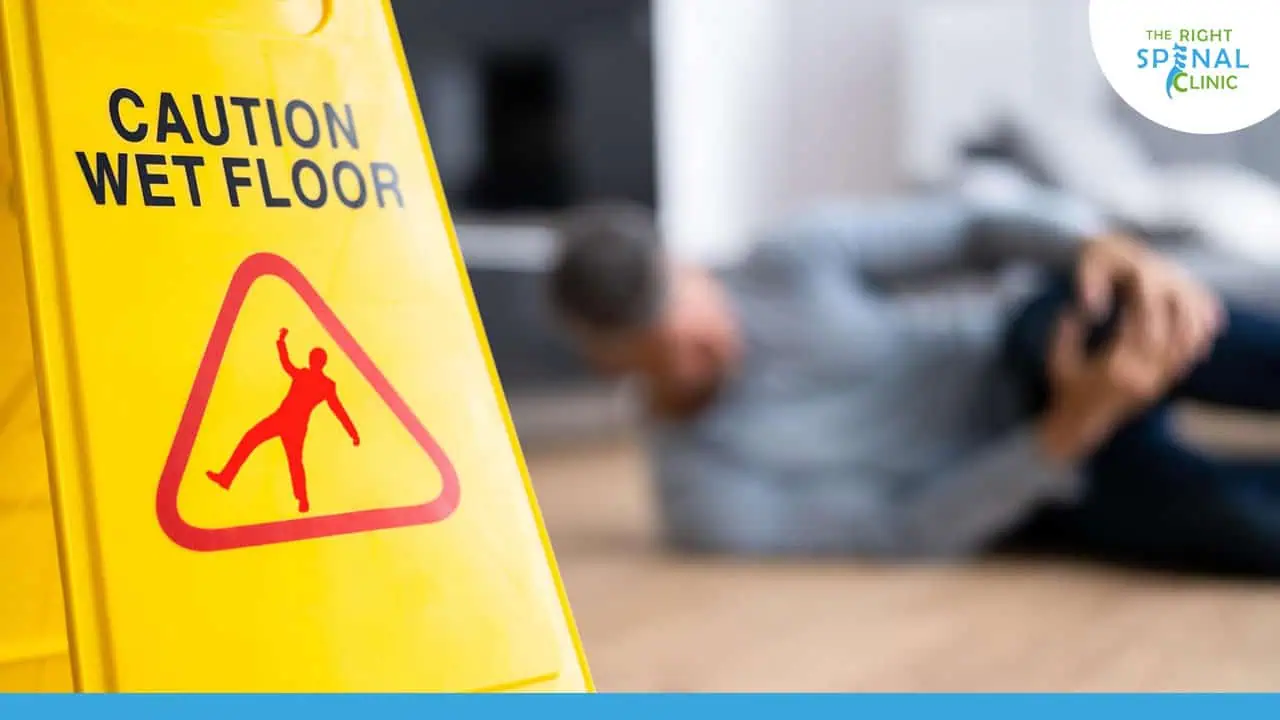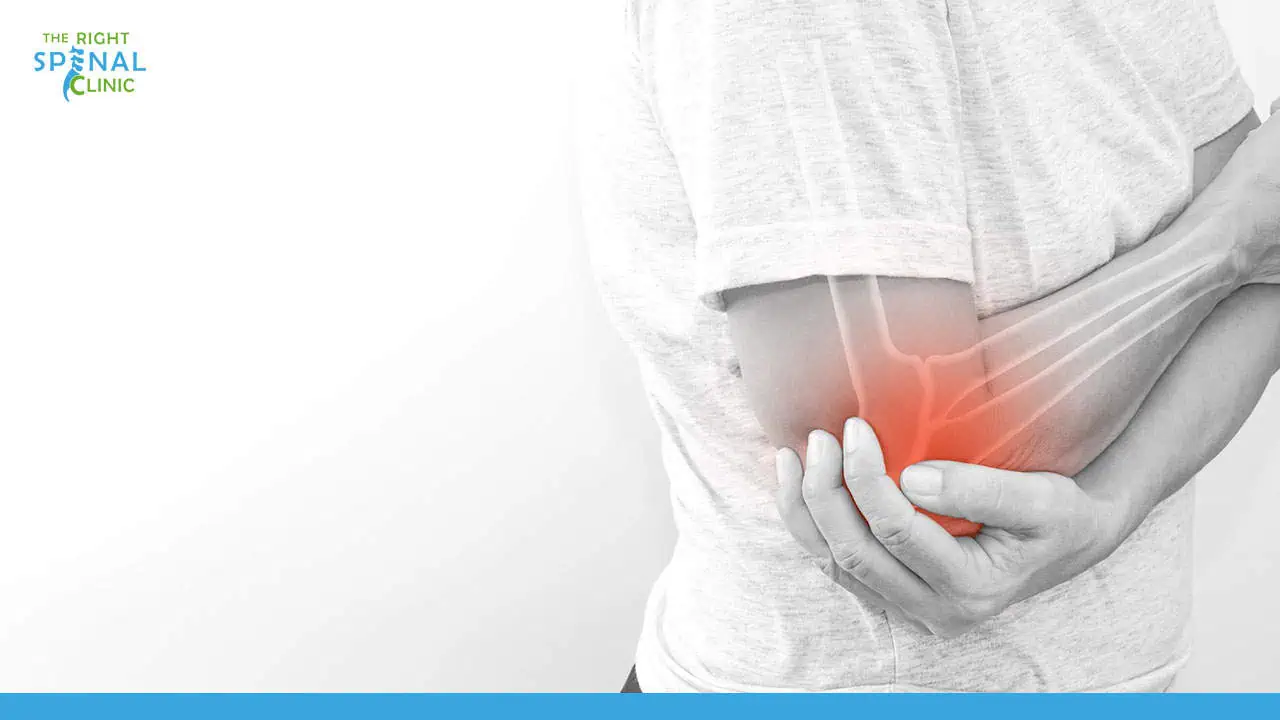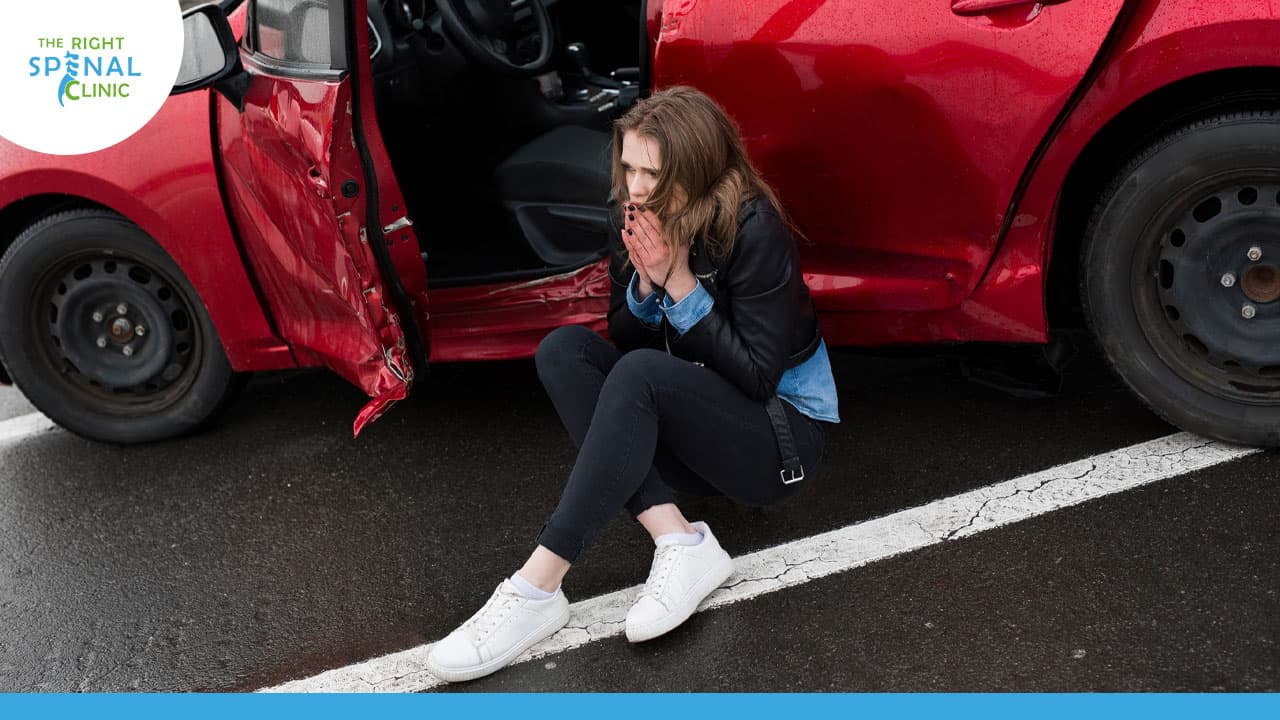
If you've experienced a car accident, trust us to guide your rehabilitation journey. Contact us to regain your health and well-being, receiving expert care for a wide spectrum of car accident-related injuries.
Schedule an appointment- Don't wait
What Are Common Car Crash Injuries?
Car accidents can result in a diverse range of injuries, such as soft tissue injuries like sprains and strains affecting muscles, tendons, and ligaments, and head injuries, including traumatic brain injuries (TBIs), necessitating emergency medical intervention. Learn more about how our Auto Accident Doctor in Tampa can help with prompt diagnosis and specialized care. Understanding the complexity of these car accident injuries is crucial.
Prompt diagnosis, often through X-rays and other diagnostic methods, is vital for injuries such as knee injuries, back injuries, broken bones, and internal injuries like chest injuries and bleeding.
Beyond physical injuries, automobile accidents can lead to mental health issues like post-traumatic stress disorder (PTSD). Timely medical treatments, including plastic surgery for facial injuries, are essential. These injuries can have lasting consequences, affecting both health and overall quality of life. Seek medical treatment as soon as possible to prevent complications.
Car Accident Injuries
Car accident injuries range from minor bruises to severe, life-altering conditions. The impact of a car collision alone can cause various types of harm to the human body, affecting different organs, bones, muscles, and soft tissues. At The Right Spinal Clinic, our Auto Accident Doctor provides personalized treatment for a wide range of car accident injuries.
Understanding most injuries is essential for both immediate medical intervention and long-term healing efforts. Below are some of the most common injuries associated with car accidents:
Whiplash
Sudden neck injuries due to head-on collisions can cause whiplash, resulting in neck pain and stiffness.
Fractures
Broken bones occur due to the impact, leading to various types of fractures such as broken ribs.
Cuts and Abrasions
Broken glass or sharp objects inside the car can cause cuts and abrasions.
Concussion
A mild traumatic brain injury caused by head impact, leads to confusion and headaches.
Bruises
Impact on the car interior or objects can cause bruising on the body.
Sprains
Ligaments can stretch or tear, causing discomfort and limited mobility.
Muscle Strains
Muscles can be stretched or torn, resulting in discomfort and swelling.
Dislocations
Joint dislocations can occur due to the force of the accident.
Internal Injuries
Damage to internal organs, such as the liver or spleen, can be life-threatening.
Seat Belt Injuries
Seat belts can cause bruising or further problems during a collision.
Seat Belt Injuries
Seat belts can cause bruising or further problems during a collision.
Spinal Cord Injuries
Car accidents can lead to spinal cord injuries, which can have severe and lasting consequences. Understanding the specifics of these injuries is crucial for proper health care and rehabilitation efforts:
Complete vs. Incomplete Injury
Spinal cord injuries can be complete (total loss of function below the serious injury) or incomplete (partial loss of function).
Paraplegia
Paralysis affects the lower half of the body.
Quadriplegia
Paralysis affects both arms and legs, often accompanied by loss of bowel and bladder control.
Spinal Fractures
Fractures in the spinal vertebrae can lead to spinal cord damage.
Nerve Impingement
Pressure on spinal nerves can cause pain, numbness, or weakness in various body parts.
Soft Tissue Injuries
Soft tissue injuries are common in car accidents and can cause significant pain and discomfort. Understanding these brain tissue injuries, their symptoms, and their relevance is essential for appropriate treatment and rehabilitation:
Strains
Overstretching or tearing of muscles or tendons causes pain and limited movement.
Contusions
Deep tissue bruises resulting from blunt force trauma.
Ligament Sprains
Stretching or tearing of ligaments, leading to joint instability and pain.
Tendon Injuries
Damage to tendons connecting muscles to bones, causing pain and restricted movement.
Hematomas
Blood clots form from broken blood vessels, causing swelling and pain.
Joint Dislocations
Displacement of bones in a joint, leading to pain and immobility.
Being aware of common symptoms of these injuries can help individuals recognize symptoms, seek timely medical help, and work towards a smoother recovery process after a car accident.
Car Accident Injuries in Tampa: A Prevalent Concern
Car accident injuries in Tampa are a prevalent concern, given the city's high frequency of accidents. From minor injuries and cuts to severe spinal cord injuries, the spectrum of harm is vast. Tampa's rapid pace and heavy traffic amplify these risks, making specialized care imperative.
Immediate diagnosis and intervention, provided by healthcare professionals and rehabilitation services, significantly impact outcomes. Prioritizing specialized care can enhance the well-being and safety of Tampa residents, aiding their recovery journey.
Recognizing Car Accident Injury Symptoms
Post-accident, recognizing subtle symptoms is vital for early intervention and smoother recovery. Common signs include neck pain (possible whiplash), headaches (potentially indicating a concussion), and back pain (muscle strain or spinal issues). Numbness or tingling may imply nerve damage, while persistent abdominal pain signals internal injuries.
Changes in behavior or mood could be TBI indicators, and sleep disturbances may suggest PTSD. Understanding these cues enables proactive recovery steps, emphasizing overall well-being after a car accident.
Serious Car Accident Injuries
Automobile accidents can result in a range of severe injuries, each with its own set of implications and required treatments. Spinal cord injuries, for instance, can lead to paralysis or loss of sensation, necessitating specialized medical care, physical therapy, and assistive devices to enhance quality of life.
Traumatic brain injuries (TBIs), varying from concussions to severe brain damage, often demand immediate medical care and ongoing rehabilitation to address cognitive impairments. Internal injuries, while not immediately apparent, can be life-threatening and may require surgery or other medical interventions. Moreover, multiple fractures can lead to long-term disability, requiring surgeries, physical therapy, and adaptive devices for mobility support.
The implications of these injuries are not only physical but can also have profound emotional and financial impacts, underlining the importance of comprehensive medical and psychological care for those affected.
Specialized Care in Tampa for Car Accident Injuries
In Tampa, The Right Spinal Clinic stands as a beacon of specialized care dedicated to addressing the unique challenges posed by car accident injuries. With a team of experienced medical professionals, we offer comprehensive evaluation, diagnosis, and tailored treatment plans for individuals dealing with the aftermath of automobile accidents.
Our expertise extends to spinal cord injuries, traumatic brain injuries, and other serious injuries resulting from accidents. Our clinic provides state-of-the-art treatments, including advanced rehabilitation programs, pain management strategies, and psychological support to aid in the recovery process.
By focusing on personalized, patient-centered care, The Right Spinal Clinic ensures that an injured person in a car accident receives the specialized attention they need, facilitating their journey toward healing and restoration of their overall well-being.

Diagnosis and Treatment of Car Accident Injuries
Diagnosis and treatment are vital in car accident injury recovery. Diagnostic procedures include physical exams, imaging tests (X-rays, CT scans, MRIs), and neurological evaluations. Accurate assessment guides precise treatment plans. Specialized care is key, offering pain management, physical therapy, and, if necessary, surgery.
Spinal injuries may require stabilization surgery, while traumatic brain injuries demand a multidisciplinary approach. Specialized clinics provide psychological support, addressing the emotional toll of accidents. Tailored treatments enhance overall quality of life, emphasizing holistic healing.
Rehabilitation and Recovery
Rehabilitation of post-car accidents is pivotal for overall recovery. Physical therapy rebuilds strength and flexibility, enabling mobility, while occupational therapy imparts independent living skills. Emotional trauma often accompanies accidents, necessitating psychological support and coping strategies from mental health professionals and support groups.
A personalized approach empowers patients, fostering independence and resilience. Comprehensive care considers both physical and mental well-being, guiding individuals toward fulfilling lives beyond their injuries.
Preventing Car Accident Injuries
Preventing car accident injuries is crucial, as car accidents can result in a wide range of injuries that affect individuals to varying extents. Head injuries, often caused by the head striking the steering wheel or dashboard, can be particularly severe. Broken bones, such as those from rear-end collisions, can also cause significant pain and suffering. It's essential to diagnose and treat car accident injuries promptly because the full extent of injuries may not be immediately apparent. By adopting safe driving practices, using seatbelts, and maintaining a safe following distance, we can collectively reduce the risk of car accidents and minimize the injuries that can result from them.
Long-Term Well-being After Car Accidents
Long-term well-being after car accidents can be significantly impacted by the nature and severity of car accident injuries. When injured in a car accident, seeking immediate emergency medical treatment is crucial, as it can help determine the extent of injuries and initiate the necessary care. Injuries such as brain injuries, nerve damage, and fractures may require ongoing attention and rehabilitation, leading to substantial medical expenses. The effects of car accident injuries can linger, causing individuals to suffer physical and emotional distress long after the accident itself. To improve long-term well-being, it is essential to address both the physical and psychological aspects of getting better, including seeking necessary emotional support to regain a sense of normalcy following automobile accidents.
FAQs: Common Concerns About Car Accident Injuries
Navigating the aftermath of a car accident can be overwhelming, especially when it comes to understanding the various car accident injuries and their implications. Here, we address some frequently asked questions related to car accident injuries to provide clarity and ease concerns.
What is the most common injury in a car accident?
The most common head injury often sustained in car accidents is whiplash. Whiplash happens when the head is suddenly jerked forward and then snapped backward, causing strain to the neck muscles and ligaments. It often leads to neck pain, headaches, and stiffness.
While whiplash is generally not life-threatening, it can cause significant discomfort and may require you to seek medical attention and physical therapy for a complete recovery.
What are the 3 types of injuries that can result from a car crash?
Car crashes can result in a variety of injuries. Apart from whiplash, fractures are common, ranging from minor to severe, and often require medical intervention like casting or surgery.
Traumatic brain injuries (TBIs) can occur, ranging from concussions to more severe brain damage, affecting cognitive functions. Internal injuries, such as damage to organs or internal bleeding, are also prevalent and may require immediate medical attention.
How long does it take to feel injuries after a car accident?
Car accident injuries may not always be immediately apparent. While some symptoms may be noticeable right away, others might manifest hours or even days later.
Seek medical attention promptly after an accident, even if there are no immediate symptoms, as some injuries may worsen over time without proper treatment.
What is typical pain after a car accident?
Injuries after a vehicle accident may not always be immediately apparent. While some symptoms like pain and bruises may be noticeable right away, others, especially internal injuries or soft tissue damage, might manifest hours or even days later.
Go to the emergency room for medical attention promptly after an accident, even if there are no immediate symptoms, as some car accident injuries may worsen over time without proper treatment.
Your Next Steps: Regaining Your Health
Prioritizing your health and well-being after automobile accidents is paramount. Understanding the potential injuries and the recovery process is the first step toward reclaiming your life. If you or someone you know has been involved in a car accident, it's essential to take immediate action.
Reach out to The Right Spinal Clinic today at (813) 392 2164 or visit our Auto Accident Doctor page to learn more. Our experienced team is dedicated to helping individuals like you regain your health and vitality after car accidents. Remember, your well-being is a priority, and taking proactive steps now can make a significant difference in your future quality of life. Act now and take the first step toward regaining your health and moving forward with confidence.
Recent Posts


